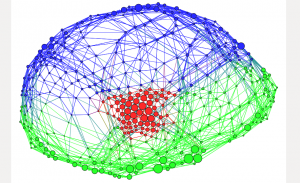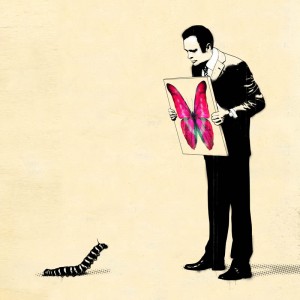Date and Time: December 14, Monday, 11.30 am
Location: Carlos Santamaría Building, Room B14
Speaker: Nei de Freitas Nunes-Neto (Federal University of Bahia, Brazil)
Title: Regulation in organisms and its ecological consequences
Abstract:
In this talk, we argue that one of the keys to understand how increasingly complex and diverse ecosystems can reach stability lies in the internal regulation of complex multicellular organisms. Indeed, multicellular organisms are able to perform new and complex ecological functions, which, at least in the case of many animals, strongly depend on regulatory controls exerted by the multicellular organism on an internal ecological community, harbored in their guts. Through the development of a case study on termites harboring an internal ecological community in their guts, we highlight two main general issues. First, that regulation implies an asymmetric relation between the regulatory and the regulated level, where the higher, regulatory level functionally modulates lower level functions. And second, that this hierarchical organization implies that, in order for a (sub)system to exert a regulatory control, it requires a capacity for global functional integration. Based on this conceptualization, we extend on the ecological consequences of regulation, arguing that the performance of the ecological functions by multicellular animals can be interpreted as actions of niche construction, in the context of larger ecosystems, contributing to their stability. Additionally, as a final point, we make a comparison of our view with the holobiont theory.
Date and Time: December 14, Monday, 11.30 am
Location: Carlos Santamaría Building, Room B14
Speaker: Nei de Freitas Nunes-Neto (Federal University of Bahia, Brazil)
Title: Regulation in organisms and its ecological consequences
Abstract:
In this talk, we argue that one of the keys to understand how increasingly complex and diverse ecosystems can reach stability lies in the internal regulation of complex multicellular organisms. Indeed, multicellular organisms are able to perform new and complex ecological functions, which, at least in the case of many animals, strongly depend on regulatory controls exerted by the multicellular organism on an internal ecological community, harbored in their guts. Through the development of a case study on termites harboring an internal ecological community in their guts, we highlight two main general issues. First, that regulation implies an asymmetric relation between the regulatory and the regulated level, where the higher, regulatory level functionally modulates lower level functions. And second, that this hierarchical organization implies that, in order for a (sub)system to exert a regulatory control, it requires a capacity for global functional integration. Based on this conceptualization, we extend on the ecological consequences of regulation, arguing that the performance of the ecological functions by multicellular animals can be interpreted as actions of niche construction, in the context of larger ecosystems, contributing to their stability. Additionally, as a final point, we make a comparison of our view with the holobiont theory.
Date and Time: December 14, Monday, 11.30 am
Location: Carlos Santamaría Building, Room B14
Speaker: Nei de Freitas Nunes-Neto (Federal University of Bahia, Brazil)
Title: Regulation in organisms and its ecological consequences
Abstract:
In this talk, we argue that one of the keys to understand how increasingly complex and diverse ecosystems can reach stability lies in the internal regulation of complex multicellular organisms. Indeed, multicellular organisms are able to perform new and complex ecological functions, which, at least in the case of many animals, strongly depend on regulatory controls exerted by the multicellular organism on an internal ecological community, harbored in their guts. Through the development of a case study on termites harboring an internal ecological community in their guts, we highlight two main general issues. First, that regulation implies an asymmetric relation between the regulatory and the regulated level, where the higher, regulatory level functionally modulates lower level functions. And second, that this hierarchical organization implies that, in order for a (sub)system to exert a regulatory control, it requires a capacity for global functional integration. Based on this conceptualization, we extend on the ecological consequences of regulation, arguing that the performance of the ecological functions by multicellular animals can be interpreted as actions of niche construction, in the context of larger ecosystems, contributing to their stability. Additionally, as a final point, we make a comparison of our view with the holobiont theory.



 Date and time: 25th June 2013, at 11.00
Date and time: 25th June 2013, at 11.00